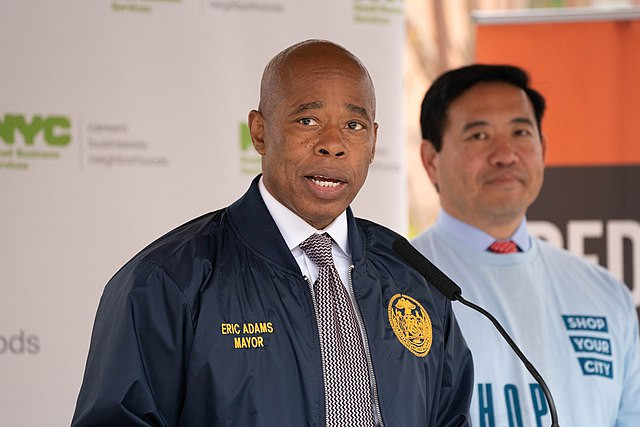The Department of Justice filed a motion on Friday to dismiss corruption charges against New York City Mayor Eric Adams following a series of resignations from top federal prosecutors who objected to the decision. The motion, signed by senior officials, including acting Deputy Attorney General Emil Bove, signals a significant intervention from DOJ leadership after a week of internal turmoil.
The motion comes after federal prosecutors in the Southern District of New York refused to drop the case against Adams, prompting resignations, including that of acting U.S. Attorney Danielle Sassoon. In a letter to Attorney General Pam Bondi, Sassoon accused DOJ leadership of political interference, citing an alleged offer from Adams' attorneys to align with President Donald Trump's immigration policies in exchange for dropping the charges.
Following Sassoon's resignation, additional departures from the Public Integrity Section in Washington, D.C., underscored the internal strife. By Friday, Bove reportedly pressured prosecutors to sign the dismissal paperwork, warning of "serious consequences" if no one complied.
Assistant U.S. Attorney Hagan Scotten, one of the lead prosecutors on the Adams case, resigned on Friday, issuing a blistering letter to Bove. "No system of ordered liberty can allow the Government to use the carrot of dismissing charges, or the stick of threatening to bring them again, to induce an elected official to support its policy objectives," Scotten wrote. He described those willing to sign the motion as a "fool" or a "coward."
Adams, who pleaded not guilty to charges of accepting illegal gifts and campaign contributions from Turkish nationals, has consistently denied any wrongdoing. His attorney, Alex Spiro, dismissed allegations of a quid pro quo. "The idea that there was a quid pro quo is a total lie," Spiro said. "We offered nothing, and the department asked nothing of us."
Bove's decision to dismiss the case without prejudice-allowing prosecutors to refile charges at a later date-has drawn criticism from legal experts and former DOJ officials. Seven former U.S. attorneys for the Southern District of New York, including James Comey, Geoffrey Berman, and Mary Jo White, issued a statement commending Sassoon's resignation as an act of "integrity and commitment to the rule of law."
The Justice Department's motion argued that allowing the case to proceed would interfere with Adams' ability to govern, citing national security concerns and the mayor's role in Trump's immigration enforcement efforts. The document further suggested that Adams was being denied access to sensitive security briefings due to the ongoing prosecution.
Judge Dale E. Ho, who is overseeing the case, has yet to rule on the dismissal request. Legal analysts anticipate that Ho may scrutinize the DOJ's rationale before granting approval. "I imagine the judge is going to want to explore what his role is under the rules," said Joshua Naftalis, a former federal prosecutor. "I would expect the court to either ask the parties to come in person to court or to file papers, or both."
Adams' case had been scheduled for trial this spring, just months before the city's Democratic primary in June. His reelection campaign has been shadowed by the indictment, which alleges he received luxury gifts, including first-class travel and hotel stays, in exchange for political favors while serving as Brooklyn borough president and later as mayor.
Trump has publicly criticized the case against Adams and has suggested he would consider a pardon for the mayor. Adams, who was a registered Republican in the 1990s, has in recent months fostered a closer relationship with the Trump administration, even visiting the former president at his Florida golf club.
Sassoon's letter to Bondi described the dismissal as an "unprecedented" act of political interference, noting that federal judges have previously rejected similar motions when they appeared contrary to the public interest. "A rigorous inquiry here would be consistent with precedent and practice in this and other districts," she wrote.
Scotten's resignation adds to the growing fallout, as he accused Bove of undermining prosecutorial independence. Any prosecutor "would know that our laws and traditions do not allow using the prosecutorial power to influence other citizens, much less elected officials, in this way," Scotten wrote.






